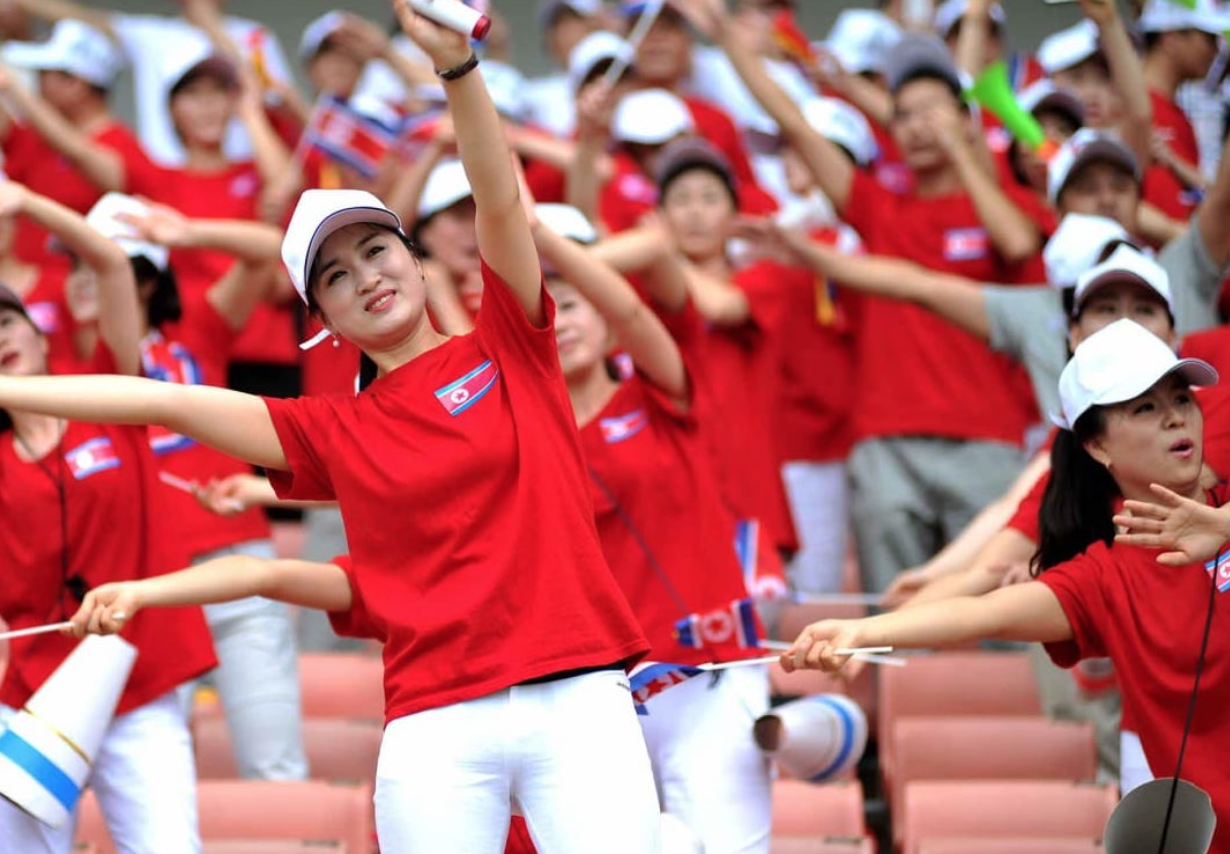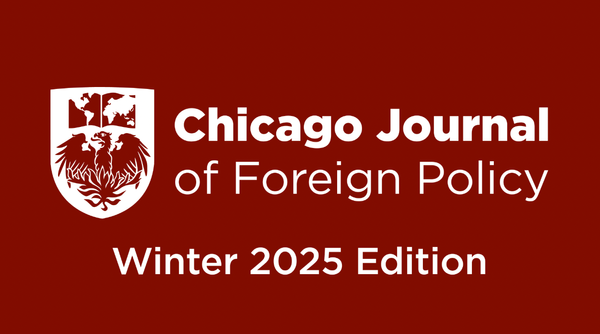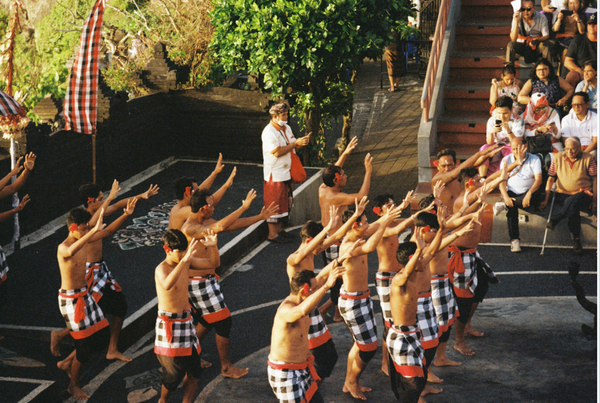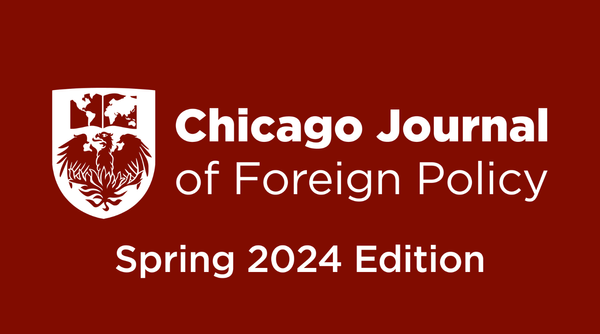Cheerleading won’t end the Korean crisis

by JOSH ZAKHAROV
The New Year was marked by a surprising overture to peace in a region characterized mostly by crisis and brinkmanship over the last year. Drawing support from Russia, China, and the United States in a way that previous efforts have failed to, January’s agreement between the North and the South to sit for negotiations on the North’s entry into the Olympics (and the possibility for further negotiations on the North’s nuclear program) has led pundits, leaders, and officials to herald the nature of international sports as an apolitical, pride-generating unifier of fans and nations.
The President of the International Olympic Committee, Thomas Bach, went so far as to call sports above politics and “beyond all political tensions,” adding that “the Olympics are always about building bridges; they never erect walls.” To Bach and other observers of the recent thaw on the Korean Peninsula, sports derive their coalition-building qualities from their apolitical character.
History seems to disagree, and suggests that at best, such bridges are seldom stable.
A recent study from Berkeley by Andrew Bertoli discredits Bach’s claim and explains that sports generate a dangerous kind of nationalism that casts doubt on the potential for peace on the Korean Peninsula, should it be supported by the bonds of athletics alone. Bertoli attempts, in his paper, to study the effect of nationalism on the initiation of conflicts using sports (specifically, qualifications to the World Cup and other international competitions) as a proxy for nationalism.
Sports are a potent driver of nationalism. Research Bertoli cites from the European Journal of Communications shows that a media focus on international sports tends to make discussion within countries more hawkish, from both the internationally competitive nature of sports and the military terms sports are often discussed in. The International Review for the Sociology of Sport even posits that “only war feeds the imagination and cements national identity more than sports.” Sports also promote a powerful sense of national unity – a qualifying national team gives a nation both one flag to unify behind and success to support; Bertoli gives the examples of Cote d’Ivoire in 2006 and Yemen in 1990 as two states where World Cup success ideologically reunified politically fragmented regions.
He concludes that “going to the World Cup increases state aggression by about two-fifths as much as a revolution does, and … resembles the effect of electing a leader with military experience.” Participation in international sports gives leaders a compelling narrative with their constituents, wherein their nation is not only prominent on an international stage but directly competitive with other nations. This narrative, by stoking nationalism, makes citizens of a nation far likelier to support aggressive foreign policies. Stephen Walt, professor at Harvard, further explains why leaders have an incentive to promote nationalism – “having a loyal and united population that is willing to sacrifice (and in extreme cases, to fight and die) for the state increases its power and thus its ability to deal with external threats.”
Dozens of examples support his point, wherein states that qualified to international competitions acted more and were more aggressive; among the most compelling is the case of the 2002 World Cup qualification of Senegal, which invaded the Gambia in the only military conflict it participated in from 1993-2010. Hosting international sports events has, too, been a driver of nationalism, and often specifically employed by leaders deliberately to encourage it – Bertoli mentions Mussolini’s Italy in 1934 and Hitler’s Germany in 1936.
This study should worry us. Max Fisher wrote in the New York Times in December that this conclusion “suggest[s] that human beings are capricious, irrational and self-destructive,” and that traditional conceptions of war as a political exercise viz a viz Clausewitz, or more modern theory like that of James Fearon arguing that war is a consequence of issue indivisibility or strategic miscalculation, are lacking a distinctively social dimension.
This is not meant to prove that war is caused by sports. Bertoli’s work highlights an oft-overlooked root cause of war that is distinctly socially constructed, and ideological or visceral rather than strategic and political. Nationalism is ethnosocial, impossible to tamp down through traditional political discourse, and is something that can be encouraged by leaders through rhetoric, outgrouping, and posturing on a global stage in a way that few institutions are as well-suited to facilitating as international sports.
Finally, back to Pyeongchang. It is certainly remarkable that some dialogue has been achieved between the North and the South, and the possibility for negotiation with the South or even with the United States in the future is, at first glance, a hopeful one. Nonetheless, to suggest that any new cooperation is because of international sports, rather than in spite of international sports, would be inaccurate, and would give little credit to the powerful role that nationalism plays in state conflict.
Sources:
Smith-Spark, Laura. “North Korean athletes will compete at Winter Olympics.” CNN. January 20, 2018. Accessed February 01, 2018. https://www.cnn.com/2018/01/20/asia/north-korea-south-korea-olympic-talks-intl/index.html.
Andrew D Bertoli; Nationalism and Conflict: Lessons from International Sports, International Studies Quarterly, Volume 61, Issue 4, 1 December 2017, Pages 835–849, https://doi.org/10.1093/isq/sqx029
Fisher, Max, and Amanda Taub. “Nations Go to War for the Strangest Reasons.” The New York Times. December 6, 2017. Accessed February 01, 2018. https://www.nytimes.com/newsletters/2017/12/06/the-interpreter?nlid=74955856.
Walt, Stephen M. “Nationalism Rules.” Foreign Policy. July 15, 2011. Accessed February 01, 2018. http://foreignpolicy.com/2011/07/15/nationalism-rules/.





